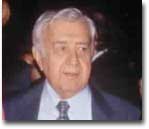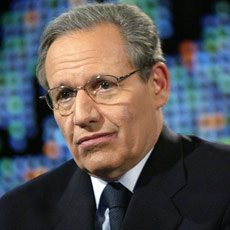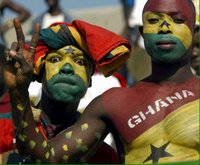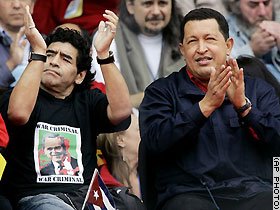Good Old Fashioned Greed

 Why am I reassured by greed? Jack Welch--called "Neutron Jack" for his skill at firing workers--retired from GE but retained ludicrous rights to GE corporate jets, apartments, and Red Sox tickets (which he gave up only when the SEC investigated). In a similar way, Rep. Duke Cunningham--former Top Gun ace fighter pilot and instructor--accepted over $2 million in bribes, including a Rolls Royce, a yacht, and a mansion largely financed by his nefarious defense-industry backers.
Why am I reassured by greed? Jack Welch--called "Neutron Jack" for his skill at firing workers--retired from GE but retained ludicrous rights to GE corporate jets, apartments, and Red Sox tickets (which he gave up only when the SEC investigated). In a similar way, Rep. Duke Cunningham--former Top Gun ace fighter pilot and instructor--accepted over $2 million in bribes, including a Rolls Royce, a yacht, and a mansion largely financed by his nefarious defense-industry backers.So why am I reassured? Both of these supposed capitalists show that, down deep, they really are just in it for the stuff. On The Pinocchio Theory, Shaviro reviews Kojin Karatani's Transcritique, a reconciliation of sorts between Kant and Marx. I haven't read the book (yet), but Shaviro argues that:
"Karatani even sees the central role of money in the capitalist world economy as a kind of return of the repressed. The classical economics of Smith and Ricardo was a reaction against the mercantilists, who “naively” imagined that money itself, in the form of of gold and silver bullion, was the source of national prosperity. But Marx, in his transcritique, plays off the mercantilists against the classicists. Karatani notes that Marx begins his discussion of money with the figure of the miser, who hoards monetary wealth instead of spending or investing it. The miser is the equivalent on an individual level of mercantilism on a national level. But the opposition between mercantilism and classicism returns at the heart of capitalism itself, in the difference between Marx’s two formulas of circulation: C-M-C (commodities are sold for money, which in turn is expended to acquire other commodities) and M-C-M’ (money is expended for commodities, which in turn are used to acquire more money). The first formula corresponds to the experience of individuals as workers, selling their labor-power as a commodity in order to obtain (through the mediation of money) those commodities that they need to survive, subsist, and reproduce."
I don't think Jack and Duke would argue that they need the yacht or the Sox tickets to survive, subsist, or reproduce. Why do they then throw everything away (in Jack's case, just his pride and legacy) just to get more stuff? In other words, in everyday work, both are capitalists who follow the M-C-M' model for their companies--they want to see money return more money on its investment. However, in their private lives, they're just workers: Jack sold to GE his valuable labor skills at firing people and cutting costs, while Duke sold to the defense contractors his valuable labor skills at lobbying other members of Congress to back his backers' contracts. These "commodities" of (mis)management and (bribed) lobbying were converted into "money" (in the form of bargaining chips for Jack and actual cash in some cases for Duke), and then in turn converted back into commodities of Rolls and Sox tickets. C-M-C!
I'm strangely comforted by this greed, because it suggests that, however much capitalism wants to force people into the box of M-C-M', the repressed desire for stuff--appreciation for the materiality of the world--is always there. Something about even the most "successful" of capitalists leads them to be enthralled by the commodity, to desire excess because it's "unnecessary." In a twisted way (as the cell phone company ad puts it), it's The Man's way of sticking it to himself.

















